Asher Bilu
Recent Exhibition Catalogue
Born in Israel in 1936, Asher Bilu began his career as an artist soon after arriving in Australia in December 1956. His first solo exhibition at Dalgetty Street Gallery in 1959 was quickly followed by two exhibitions at John Reed’s renowned Museum of Modern Art of Australia. Since then he has exhibited widely in Australia and Europe, and has work held by major collecting institutions throughout Australia, including four commissioned works for the Concert Hall of the Victoria Arts Centre. Other commissioned work includes his installations in public galleries, such as Amaze (1982), Mysterium (2003), and Heavens (2006), some of which have toured to regional venues in Australia. Bilu studied classical violin before beginning his career as a visual artist soon after arriving in Australia but his musical passion continues through study of classical Hindustani music on the Indian instrument, the sarod, which he plays privately.
From the start, Bilu’s art has been abstract, with particular emphasis on technological experimentation. His technique changes as he investigates the use of new media, but his work always reflects his fascination with light, and his love of music and science, especially cosmology. In 1965 he won the Blake Prize for a work entitled I form Light and Create Darkness – Isiah 45:7which is dominated by a large meteor shape suggesting a dramatic moment in the birth of life out of chaos.
Beginning in 1982 Bilu worked as Production Designer with Director Paul Cox, bringing his unique visual sensibility to the films Man of Flowers, My First Wife, Cactus, Vincent, Human Touch, and his final film Force of Destiny, the latter two films featuring Bilu’s installations Explanandum (2002), Amaze (1982), a section of M-Theory (2010) and paintings from the Cosmotif Series (2012).
“I have chosen to deal with abstraction because for me it provides the freedom to explore the unknown. To paint figuratively is to paint what I already know or have seen before. The language of abstraction is universal (as is the language of music) and can be accessible to anyone who takes the time to see. I want to use this language to express the beauty and the mysteries of our existence in an infinite universe of which we are only a small part. I hope my optimism and love of life will be contagious.” - Asher Bilu
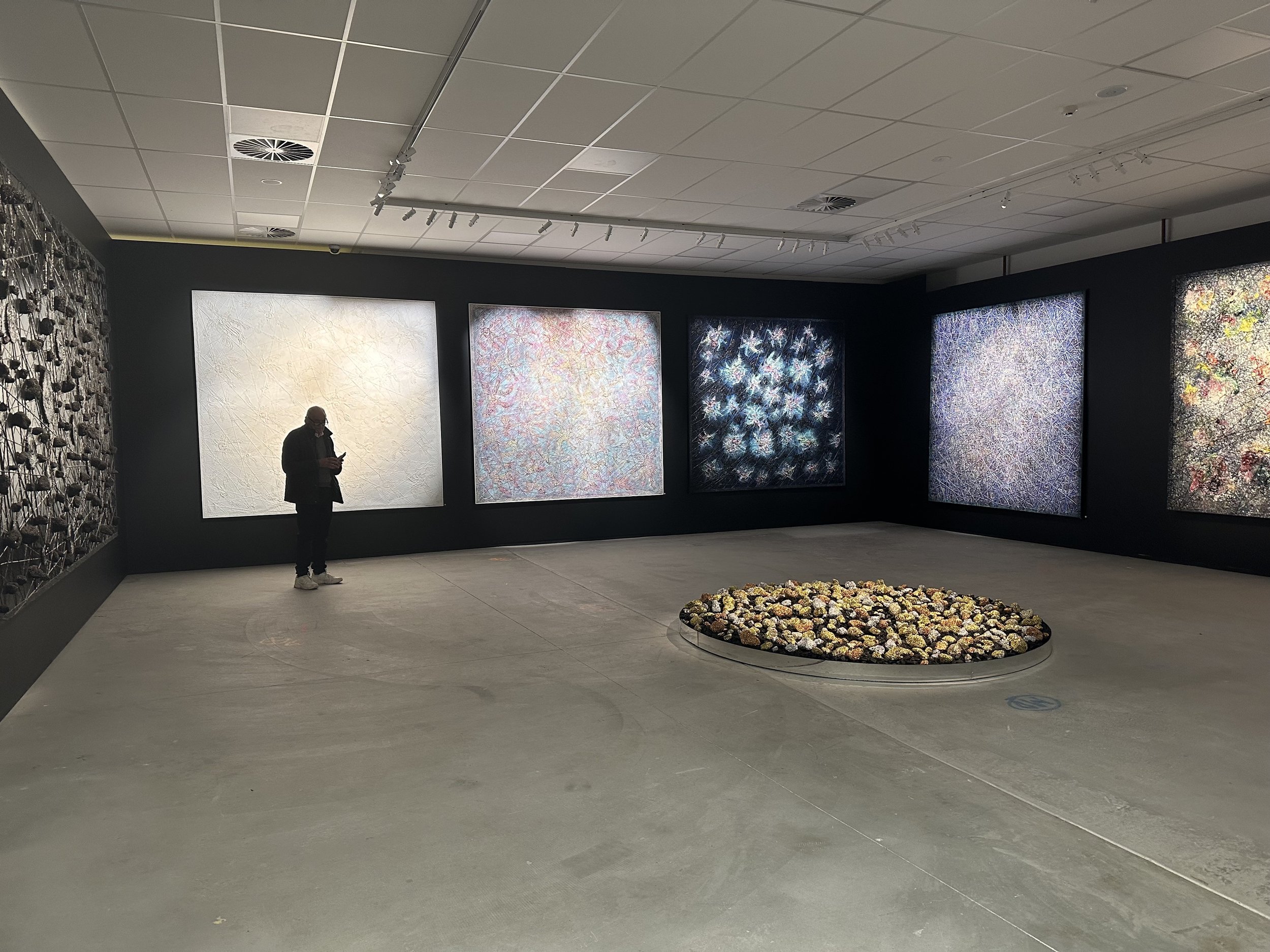
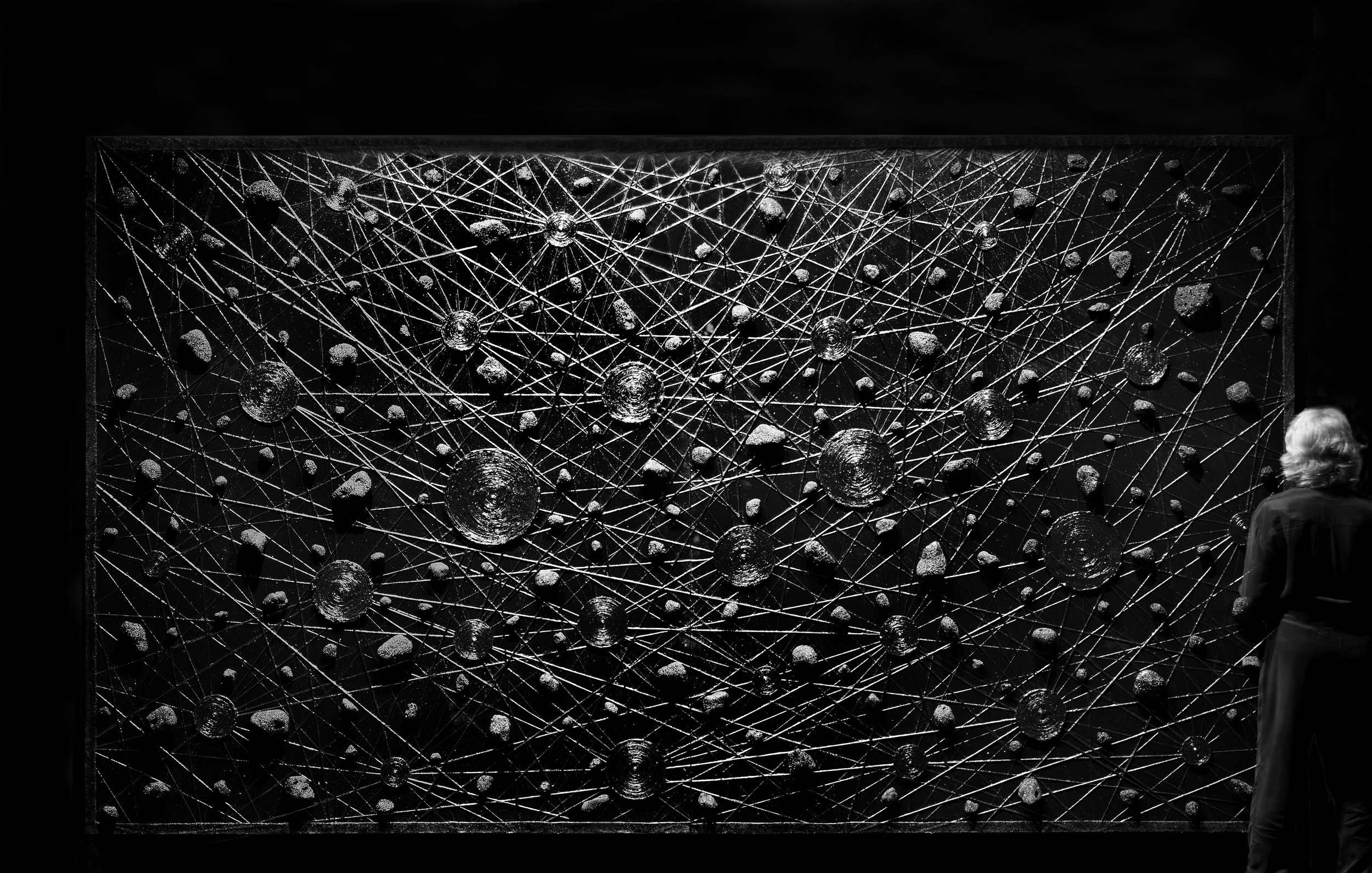
Cosmic Strings 7 Acrylic, string, felt, lava rocks on board 244 x 424 cm (In 2 sections each 244 x 212) $85,000
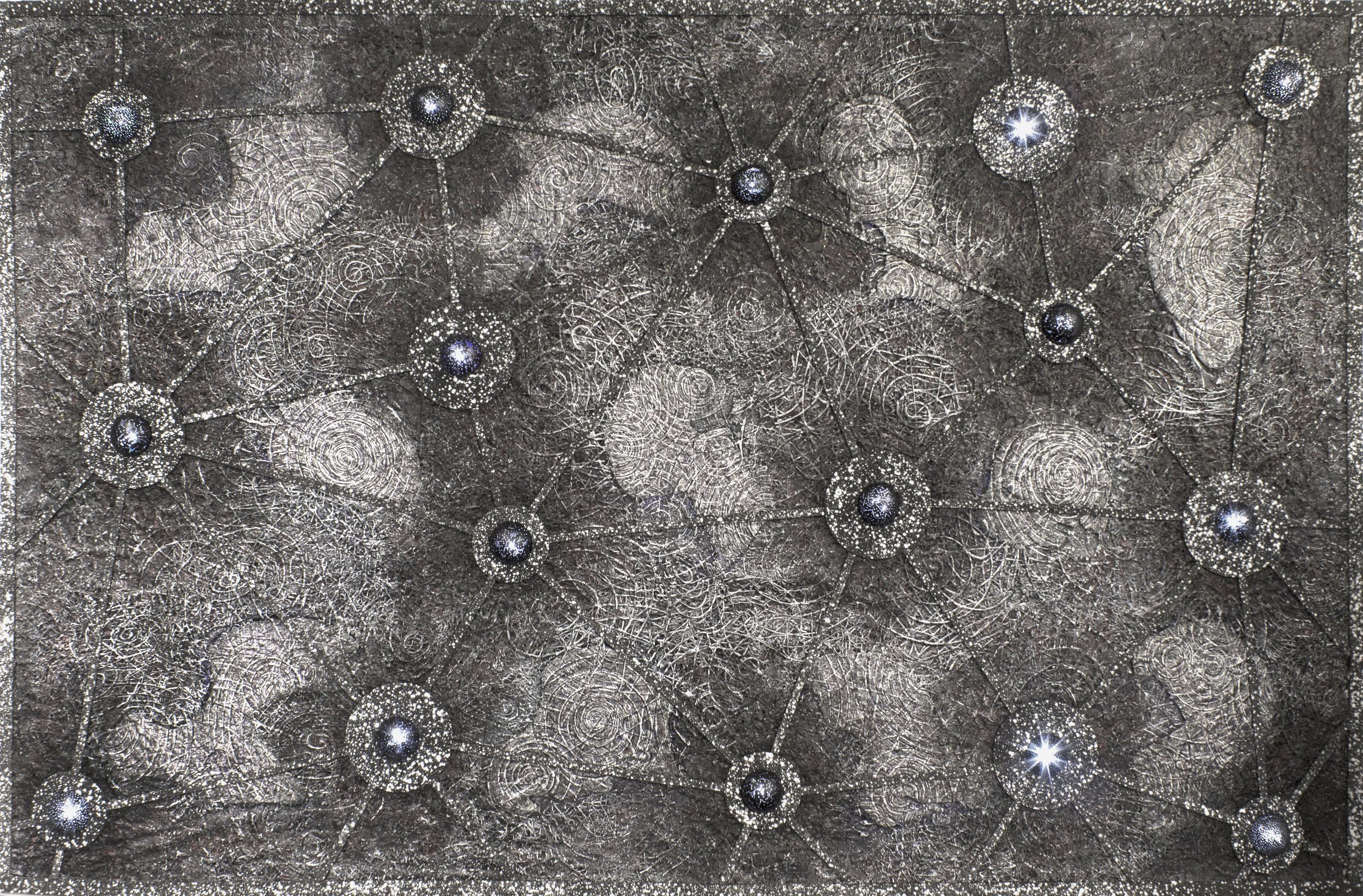
Array PVA resin, plywood, felt, copper, compact discs, LED lights on canvas 232 x 360 cm $ 85,000
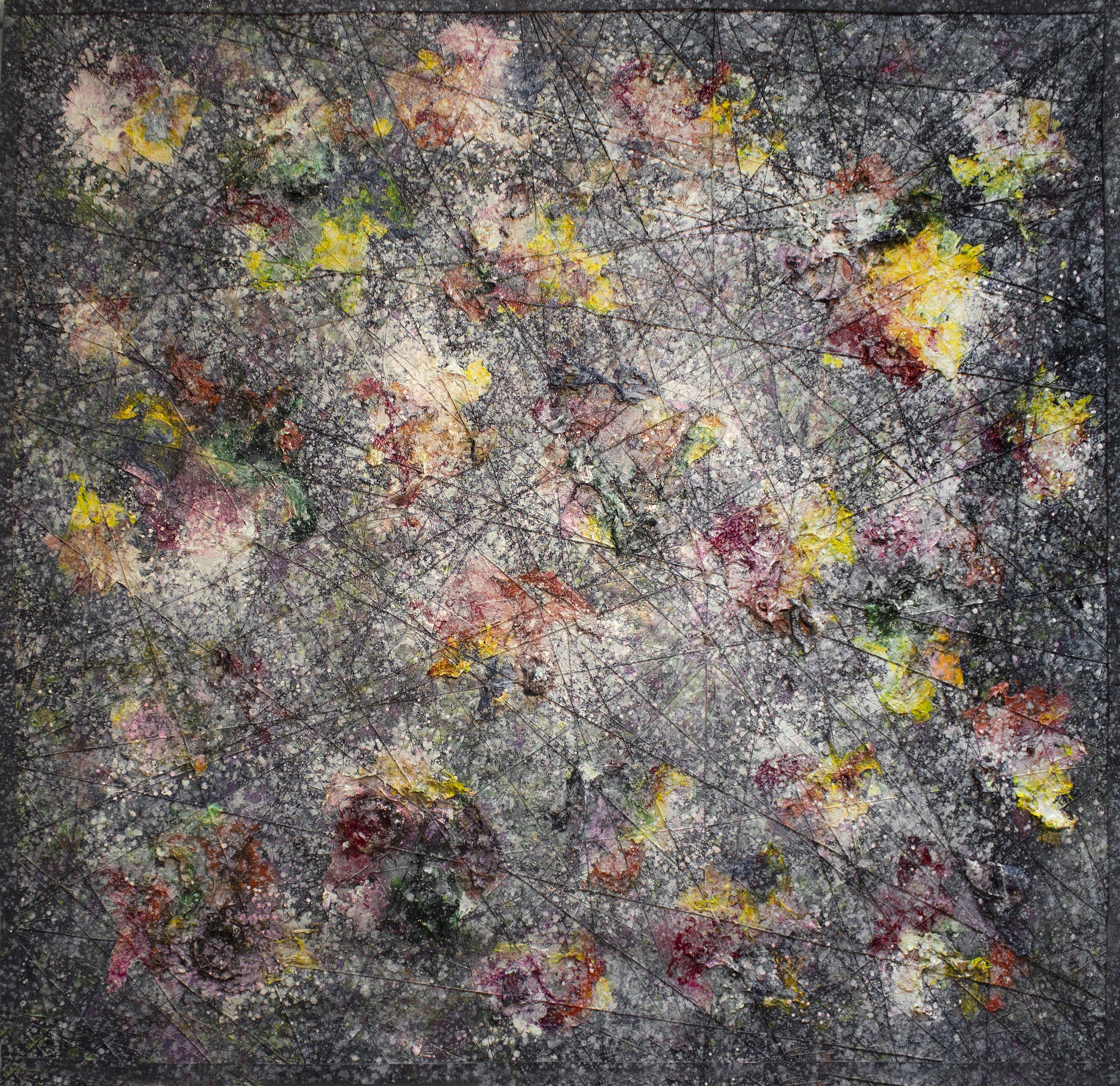
Cosmic Strings 1 Flower Power PVA resin, pigments, string, felt on canvas 234 x 243 cm $40,000
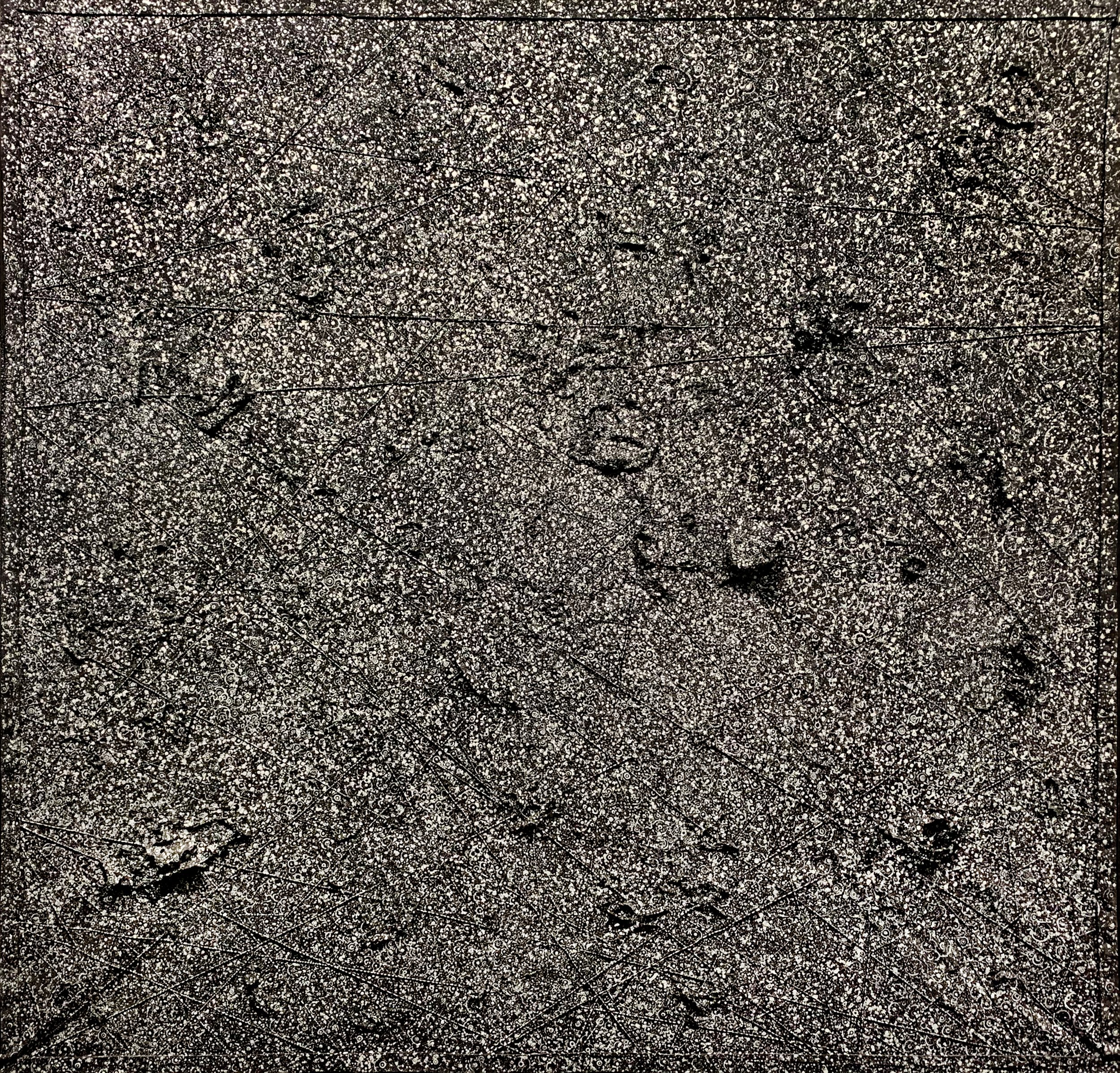
Cosmic Strings 2 Control out of Control PVA resin, pigments, string, felt on canvas 236 x 248 cm $ 40,000
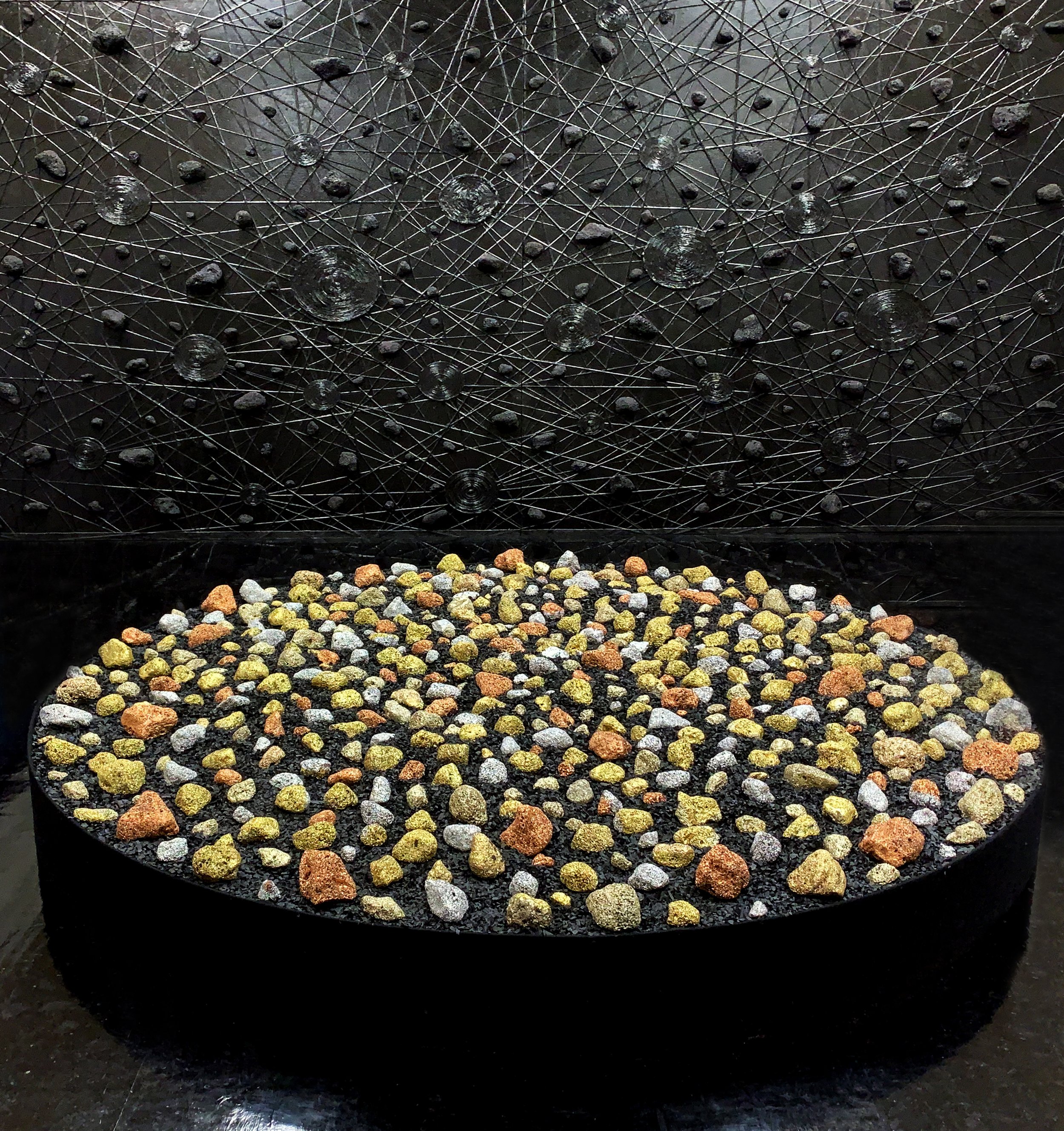
Transmutation Lava rocks, silver copper and gold gilding, charcoal, coal & wood. Base: Mirrored plywood 250 cm diam x 10 cm high $ POA
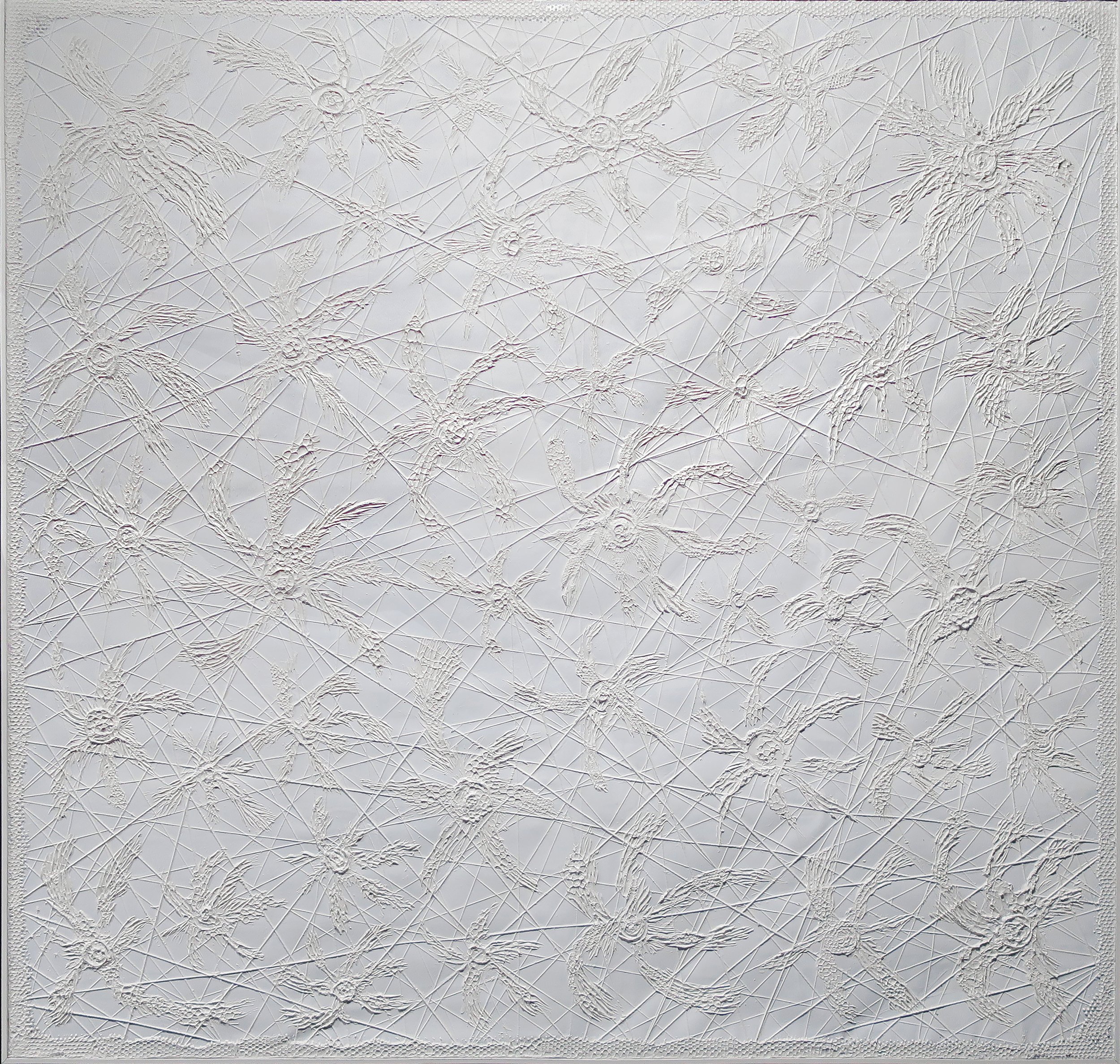
Cosmic Strings 3 PVA resin, pigments, string on canvas 240 x 252 cm $40,000
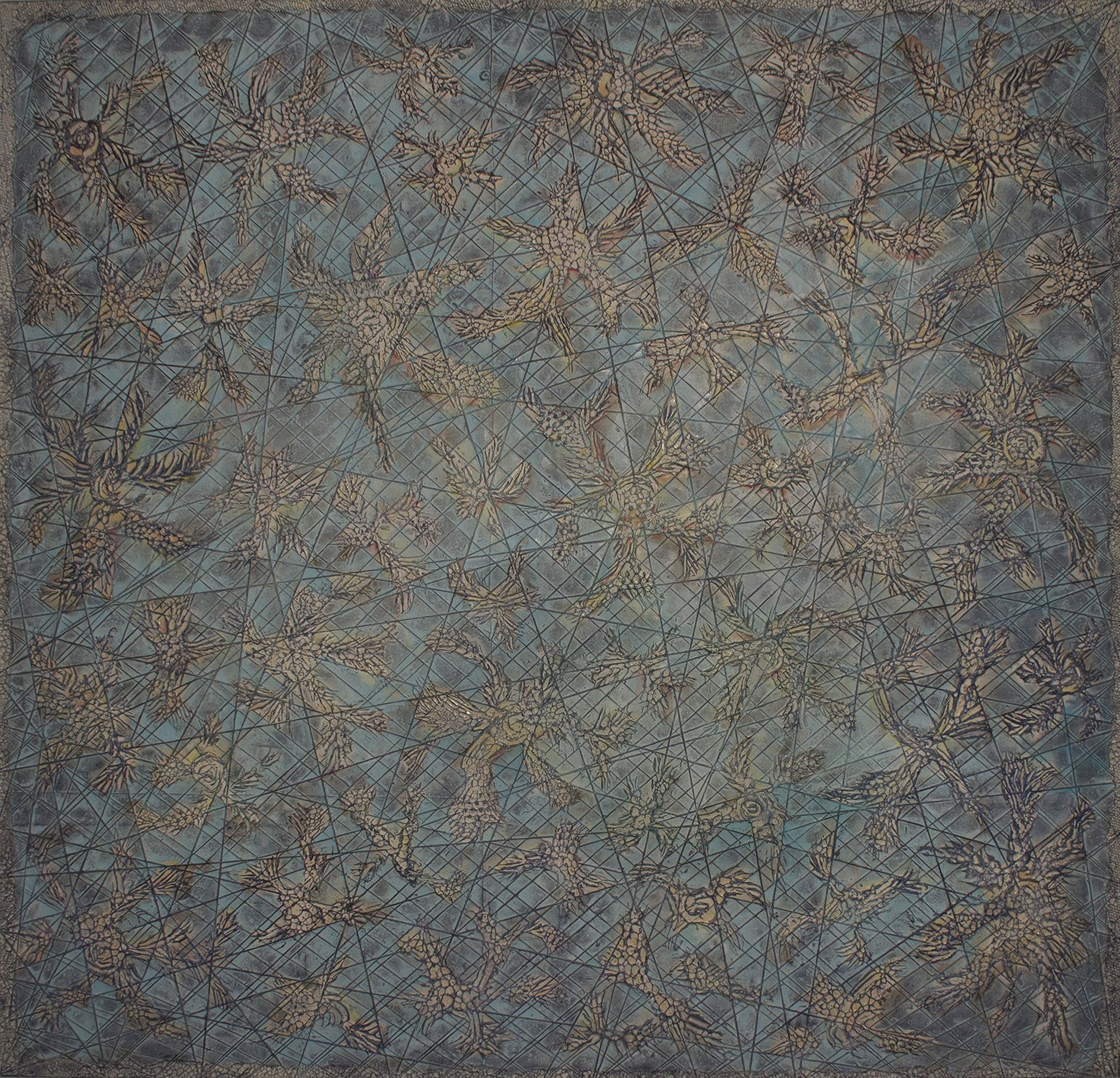
Cosmic Strings 4 PVA resin, pigments, string on canvas 240 x 252 cm $40,000
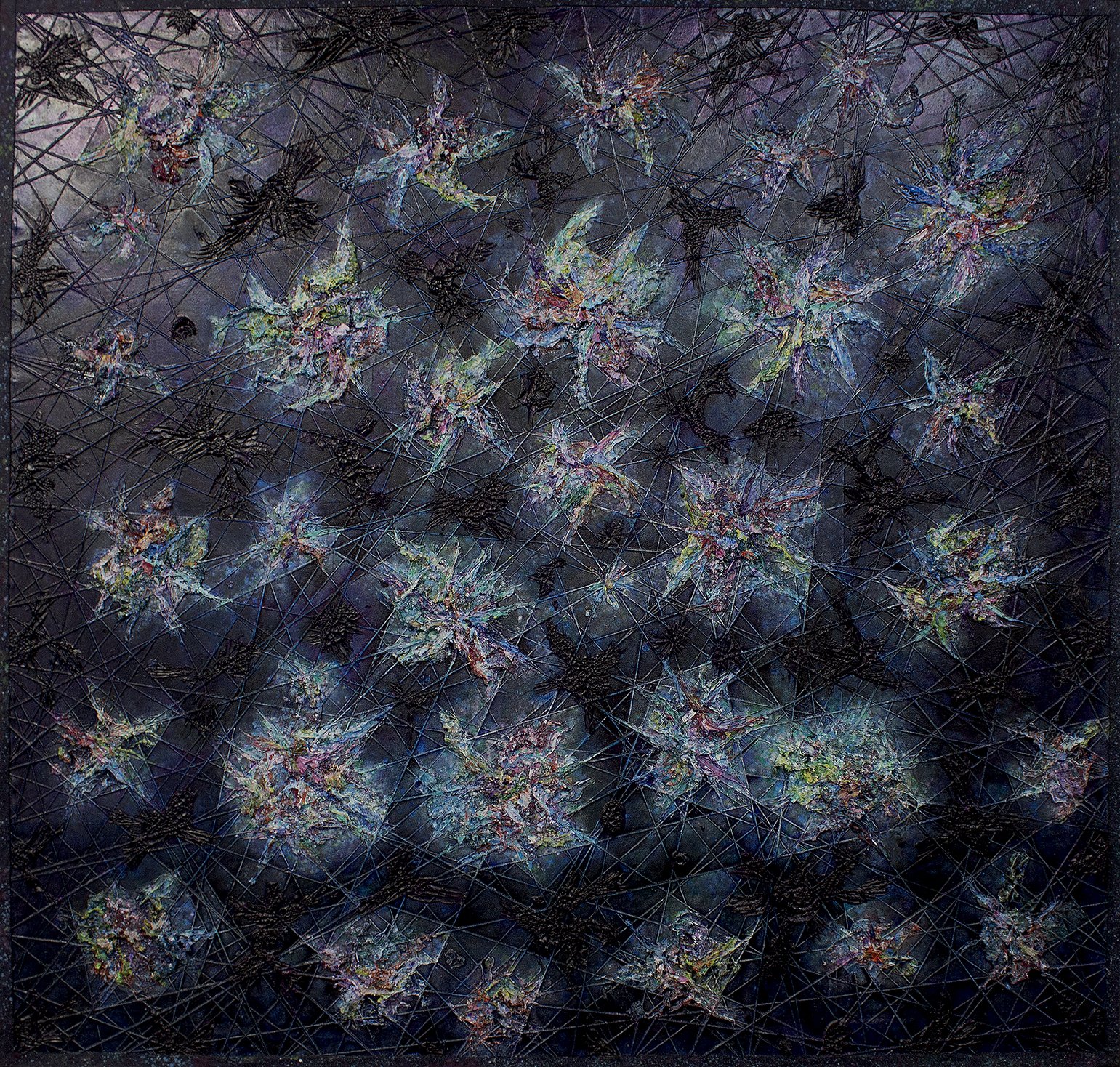
Cosmic Strings 5 PVA resin, pigments, string, felt on canvas 240 x 252 cm $40,000
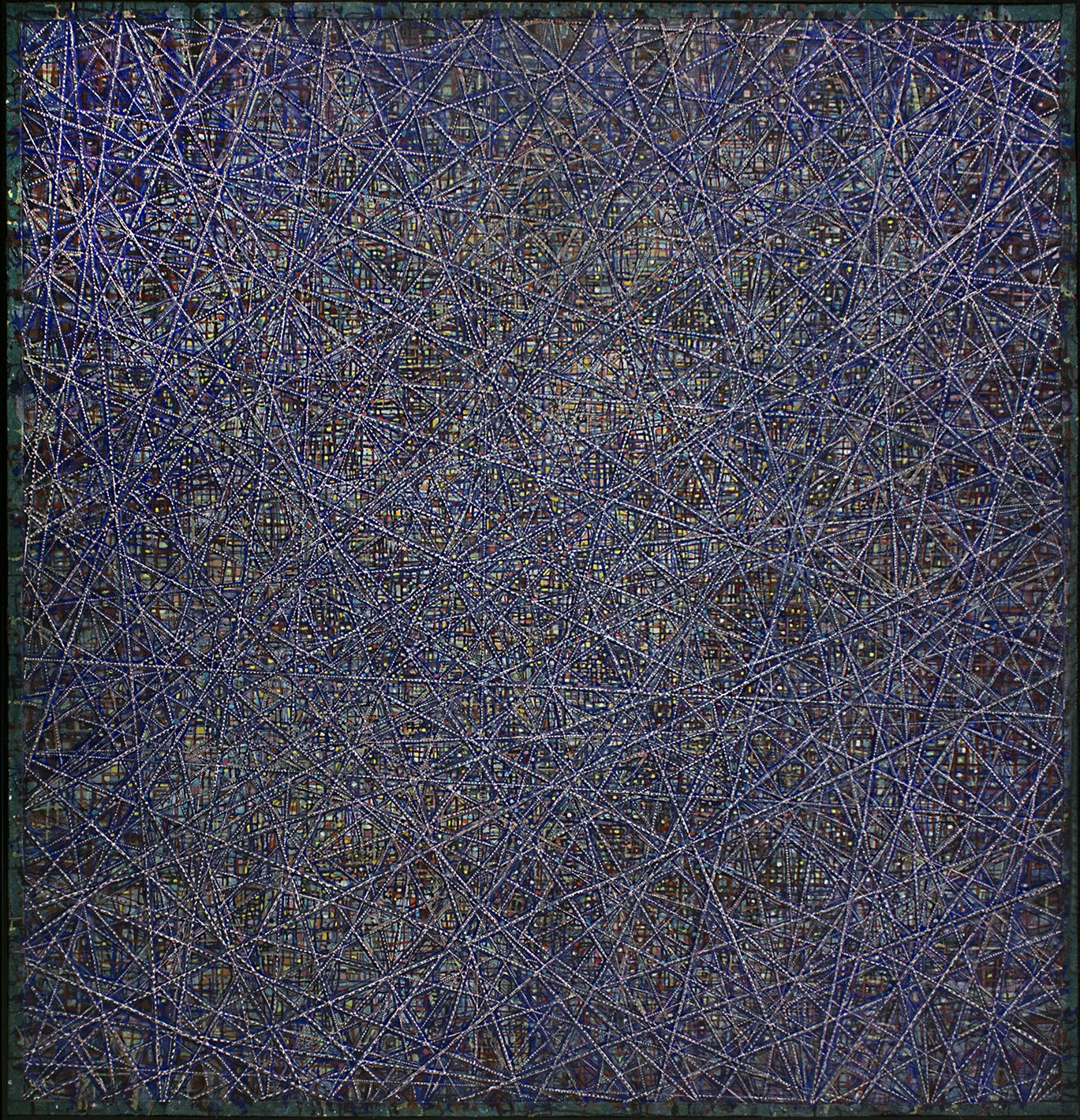
Cosmic Strings 6 Acrylic, string, felt, on canvas 240 x 252 cm $ 50,000
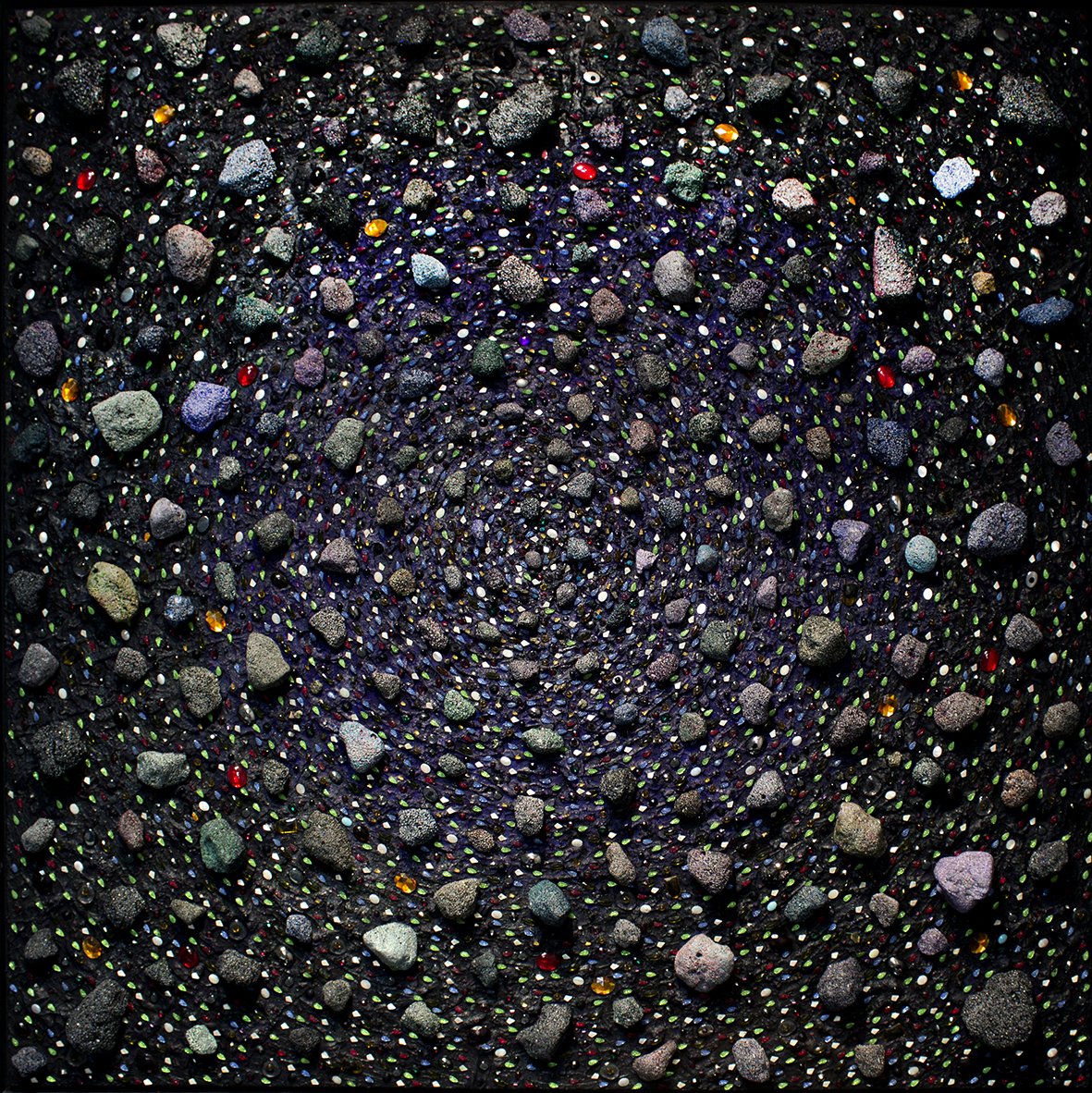
Edge of the Unknown 2 Resin & pigment, lava rocks, glass, semi-precious stones on board 183 x 183 cm $50,000